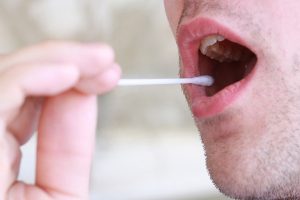
In December 2016, Charles Piller (@cpiller), the west coast editor for Stat, reported that a genetic test to identify patients who could be prone to addiction lacked a firm scientific basis.
With an eye-opening headline, “Called ‘hogwash,’ a gene test for addiction risk exploits opioid fears,” the article raised important questions about the Proove Opioid Risk test from Proove Biosciences in Irvine, Calif.
Published Dec. 13, it was the first of four articles about Proove that Piller wrote over eight months that questioned the validity of the test and the company’s marketing practices. In the second article, published Feb. 28, “It’s easy money: Lab offers doctors up to $144,000 a year to push dubious genetic tests, employees say,” Piller explained how the lab company used questionable practices to promote the test to physicians.
After the second article was published, Proove pushed back hard, challenging Piller’s reporting and asking that Stat withdraw the coverage.
In a new Q&A for AHCJ, Piller explains how he did the stories and how he and Stat reacted to the charges that the reporting was inaccurate. In addition, he says, genetic testing companies often make overstated claims about the utility of their tests. “It’s a rich area for reporting,” he adds. In a blog post earlier this year, we wrote about how health insurers, patients and physicians struggle to evaluate the utility and validity of genetic tests.
In October, we covered the charges that Proove’s founder and former CEO Brian Meshkin leveled against Piller’s reporting. Meshkin blamed the company’s financial problems on Piller’s work. Yet, a review of Piller’s work shows Meshkin’s complaints are unfounded given that Piller quoted experts in genetic testing who expressed doubts about the scientific claims behind the opioid risk test.
In the third article, published June 8, “FBI raids offices of lab that pays doctors to promote genetic tests, Piller detailed the criminal investigation. For the fourth article, published Aug. 31, “Proove Biosciences, which sold dubious DNA tests to predict addiction risk, sells off assets as CEO departs amid criminal probe,” Piller interviewed Brian Meshkin, Proove’s founder and former CEO.
“Meshkin blamed the company’s fall on investigative articles published by Stat last December and February,” Piller wrote.
In the tip sheet, Piller addresses all of these issues and offers suggestions for journalists seeking to gain the trust of sources who might be unwilling to speak on the record and how to identify clinical lab testing companies that might be selling questionable tests.






